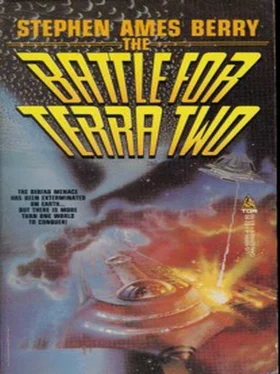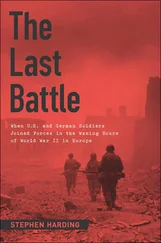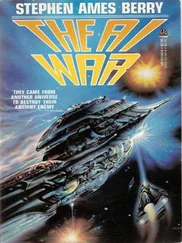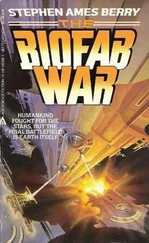Stephen Berry - The Battle for Terra Two
Здесь есть возможность читать онлайн «Stephen Berry - The Battle for Terra Two» весь текст электронной книги совершенно бесплатно (целиком полную версию без сокращений). В некоторых случаях можно слушать аудио, скачать через торрент в формате fb2 и присутствует краткое содержание. Жанр: Фантастика и фэнтези, на английском языке. Описание произведения, (предисловие) а так же отзывы посетителей доступны на портале библиотеки ЛибКат.
- Название:The Battle for Terra Two
- Автор:
- Жанр:
- Год:неизвестен
- ISBN:нет данных
- Рейтинг книги:3 / 5. Голосов: 1
-
Избранное:Добавить в избранное
- Отзывы:
-
Ваша оценка:
- 60
- 1
- 2
- 3
- 4
- 5
The Battle for Terra Two: краткое содержание, описание и аннотация
Предлагаем к чтению аннотацию, описание, краткое содержание или предисловие (зависит от того, что написал сам автор книги «The Battle for Terra Two»). Если вы не нашли необходимую информацию о книге — напишите в комментариях, мы постараемся отыскать её.
The Battle for Terra Two — читать онлайн бесплатно полную книгу (весь текст) целиком
Ниже представлен текст книги, разбитый по страницам. Система сохранения места последней прочитанной страницы, позволяет с удобством читать онлайн бесплатно книгу «The Battle for Terra Two», без необходимости каждый раз заново искать на чём Вы остановились. Поставьте закладку, и сможете в любой момент перейти на страницу, на которой закончили чтение.
Интервал:
Закладка:
"About as many as CIB has in Mexico," said Grady as the elevator descended. "We're in a war here, too, whatever Frederick wants to call it." The elevator stopped, doors opening silently. "BOQ level," said the captain. "You'll be quartered here."
John squinted as they stepped into the long white hallway. The light was harsh-more fluorescents and latex-painted walls, he saw.
Grady led him along the deserted hallway to a tan door marked "Petersen" by a stenciled placard. "Here you are," said Grady, slipping the placard out of its holder.
"What about Petersen?" asked John as Grady turned on the lights. It was a small room, just a maple bed with matching dresser, black footlocker and a small armchair. The walls were white, the floor brown.
"Captain Petersen was our last G2," said Grady, setting Harrison's bag on the footlocker. "Against orders he went to parley with one of the ganger chiefs. Some of him came back in a poncho.
"Can I do anything else for you?"
"No, thank you."
"Colonel Aldridge expects you at oh-eight hundred tomorrow, Major-level five, turn right. Office with the flags out front. Officers' mess is level three-just follow the herd."
"I will. Thank you, Captain."
"Good night," said Grady, pulling the door shut. His foosteps receded down the hall.
On the whole, thought John, slipping into the too-hard bed, I'd rather be with Zahava, in that little villa near Caesarea.
He dreamed of reporting to the CO's office, where a long line of John Harrisons waited, each dressed as a UC major. An argument broke out as to who was the real John Harrison-an argument growing louder until the office flew open and Guan-Sharick-the-blonde stepped out, wearing a UC colonel's uniform. The S'Cotar looked at them, then threw back its head and laughed and laughed and laughed.
3
It might all have ended much sooner, differently, had Hitler survived Wolfsschanze. Stalin's refusal to ratify the Basel Accord and his subsequent catastrophic use of biological weapons, uniting Germany and the Allies against Russia, would not have occurred had von Stauffenberg's briefcase been less well placed. The war would have been fought to its bleak conclusion, surely no later than mid-1946.
– John HarrisonThe Second World War: Key Variables and Consequences(Unpublished doctoral dissertation, submitted to the Faculty of History, McGill University)
'' 'Reassigned Urban Command by order Lieutenant General Quentin Harwood, Director, Central Ingelligence.' " Colonel Aldridge unhooked his wire-rim bifocals, setting them down on John's file. "You must have stomped some big, hairy toes, Major. You were evidently very much in the general's favor, not long ago. The CIA did send you for your doctorate."
Tall, thin-gaunt, really, thought Harrison-Aldridge was a man of strange contrasts. The boxy white office was too small for his awards and memorabilia: diplomas (B.A., M.A., Ph. D., all history, all Harvard); a lacquer-framed Chinese calligraphy (Lao-tzu, 6th century B.C.E.), and a faded black-and-white photograph of a mixed group of U.S. Army and Wehrmacht officers beside a blasted T-32 tank. This last was captioned "The Ukraine. Summer, 1949."
"The general didn't care for certain arguments in my dissertation, sir. I was ordered here the day after receiving my diploma. My phone calls to the Agency aren't-weren't returned." John was fairly certain, from the way Guan-Sharick had structured everything, that General Harwood had long been replaced by one of the Illusion Master's transmutes.
"You're in good company, Major," said Aldridge. "Urban Command has few volunteers. Everyone starts fresh here-killers, rapists, deserters, intellectuals. Do your four years well and you'll get a good posting.
"Sit, please."
John sat.
"You know, Major," said Aldridge, leaning back in his chair, "the longer I'm at this job, the more I flirt with Marxism."
Aldridge's face held John: a craggy, weathered New England patriarchal face, seemingly lifted from a John Singleton Copley canvas and set atop the long, black-uniformed body. Colonel's eagles, silver star with oak leaf cluster and the Wehrmacht liaison ribbon lent the final incongruities. James Lowell Munroe Aldridge, soldier, scholar, Yankee; gauleiter of Boston, military governor of what remained of the Athens of America. An iconoclastic Boston Brahmin, Guan-Sharick had said of Aldridge.
"How's that, sir?" asked John.
"I come more and more to believe in economic deter minism, Major," said the colonel. "Why do you think anarchy's triumphed in so many of our cities? Why do you think we're here, an encircled garrison defending the remnants of civilization in the urban enclaves?" Soft, cultured, a hint of steel beneath, his was a voice made for the Socratic method.
There'd been a chilling note in Guan-Sharick's briefing about the consequences of free speech. John answered carefully. "The War, Colonel. We've never recovered from the War."
"The German War, the Japanese War or the Soviet War, Major?" He smiled indulgently. "Or do you mean the endless war preparations, the alleged Armistice that saps our resources, fueling a huge force that may never fully engage?''
John held out a pack of Lucky Strike Greens-the late Major Harrison had done two packs a day.
Aldridge shook his head. "Enjoy."
"Why is a man of your attainments an Urban Corps commandant, Colonel?" asked John, lighting a cigarette. "Many Canadian schools would welcome you."
Aldridge looked into his coffee mug, index finger thoughtfully tapping the faded red coat-of-arms etched into the side. "A man needs more than the pap of intellectualism to hold his life together. Duty is my cement, Major," He looked up. "It keeps me here. That and a sense of place. My people signed the Mayflower Compact, stood at Lexington, broke Pickett's charge, fought at Chateau-Thierry. Boston bred and buried, the lot."
He reached out, pressing a button.
"Know anything about our situation here?"
"Very little, sir."
"We're essentially a Norman castle, protecting the few from the many."
A young Wehrmacht captain came in, carefully shutting the door. He snapped a brisk salute at Aldridge. "At ease, Erich," said the colonel, returning it sketchily.
"Major John Harrison, Hauptmann Erich zur Linde of the Fourth Reich's Civil Order Unit. Erich's an exchange officer, here for a year. His experience in Southwest Africa is proving most helpful with the gangers."
John took the German's hand, shaken a bit by the field gray uniform and the jackboots-the Fourth Reich had obviously kept the Third's military dress.
"Erich's father and I served under Speidel. We crossed the Malinkoff Line together in '49." Aldridge pointed his pen at the photograph. "He's third from the left." John glanced at the picture. The younger zur Linde might have been his father's twin: tall, broad-shouldered, with the same square jaw and disturbingly resolute expression. Harrison supposed they also shared the same blond hair and blue eyes.
"Erich, I'd like you to give Harrison the tour. He's our new G2, with CIB experience. Let's hope his insight's as useful as yours."
"My pleasure, Colonel," said the young German. His English bore only a trace of Central Europe.
"See you tomorrow, gentlemen. Staff meeting at 0830."
The two saluted and left, leaving Aldridge to his reports.
The tour began over ruins and ended over cocktails. Leading Harrison to the rooftop heliport, zur Linde signed out one of the small recon choppers. Sliding into the pilot's seat, he motioned John to the copilot's seat. They lifted off and swung east.
The Hospital by daylight was a squat rectangle as bleak as its surroundings: windowless, gray concrete fronted and topped by the sandbags and razor wire. The rubble around it had been cleared from the hill on which it sat, providing a thousand-meter killzone. Landmine furrows puckered the slopes.
Читать дальшеИнтервал:
Закладка:
Похожие книги на «The Battle for Terra Two»
Представляем Вашему вниманию похожие книги на «The Battle for Terra Two» списком для выбора. Мы отобрали схожую по названию и смыслу литературу в надежде предоставить читателям больше вариантов отыскать новые, интересные, ещё непрочитанные произведения.
Обсуждение, отзывы о книге «The Battle for Terra Two» и просто собственные мнения читателей. Оставьте ваши комментарии, напишите, что Вы думаете о произведении, его смысле или главных героях. Укажите что конкретно понравилось, а что нет, и почему Вы так считаете.












